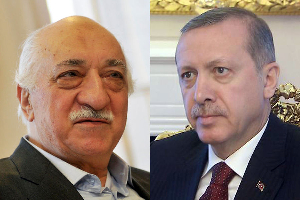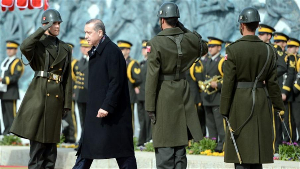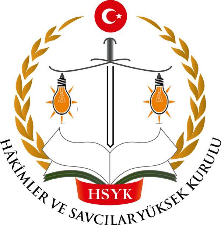What the Columnists Say

Several columnists have brought up the recent attack against Charlie Hebdo in Paris. Yusuf Kaplan in Yeni Safak writes that the attack was the work of the French “deep state” in order to increase Islamophobia. Orhan Kemal Cengiz in Bugün writes that pious Muslims must stop hiding behind conspiracy theories, and Nuray Mert writes on the Diken news site that blaming such attacks on groups created by the West is simply an attempt to pretend that there is not a major problem that Muslims need to tackle.
Narrative Veils: Erdogan, the AKP and the Gulenist Arrests
By Gareth Jenkins (vol. 7, no. 23 of the Turkey Analyst)
On December 14, 2014, the Turkish police staged early morning raids in 13 provinces across the country following the issuing of arrest warrants for 31 alleged members of the Gülen Movement on terrorism charges. Those detained included six journalists, prompting claims in the national and international media that the arrests were another example of President Recep Tayyip Erdoğan’s increasing suppression of freedom of expression. In fact, the narratives of the AKP and the Gülen Movement about the arrests are both attempts to coat a power struggle with the gloss of a commitment to principle.

What the Columnists Say
The detentions of Gülenist media personalities have led to a discussion whether or not they deserve support in the name of the freedom of expression, against the background of the joint Gülenist-AKP assaults against the opposition and media in the past. Ekrem Dumanlı, the editor in chief of the Gülenist daily Zaman, who was one of those who was detained, defends past editorial policy, writing that “We honestly appropriated the Ergenekon investigation and lent whatever earnest support to it that we could,” because, he claims, there were many known examples of journalists collaborating with coup makers. Dumanlı concedes that some things that were published may have been “over the mark,” but he asks critical colleagues to support him nonetheless and not “make the same mistake against us.” Güray Öz in Cumhuriyet writes that “no journalist can be deprived of support because of what he has done in the past,” but that the assault against it today does not absolve Gülenist media from its responsibilities for what it has committed in the past.

The Return of the Generals
By Halil Karaveli (vol. 7, no. 21 of the Turkey Analyst)
The Turkish generals are no longer afraid to speak out and they exert influence over government policies. Erdoğan invited the military back into the power equation when, faced with the Gülenist challenge to his power, and in need of a new ally, he gave the signal to open the prison doors for the convicted officers. But more than anything else, it is the persistence of an authoritarian mindset that sets the stage for the recurrent assertion of the power of the military in Turkey.

Rebalancing the Scales: The Forthcoming HSYK Election
By Gareth Jenkins (vol. 7, no. 16 of the Turkey Analyst)
On October 12, 2014, Turkey’s judges and prosecutors will choose ten members of the Supreme Council of Judges and Prosecutors (HSYK) in an election which is likely to have far-reaching repercussions both for the government’s campaign against followers of the exiled Islamic preacher Fethullah Gülen and the broader issue of political control over the judiciary.








